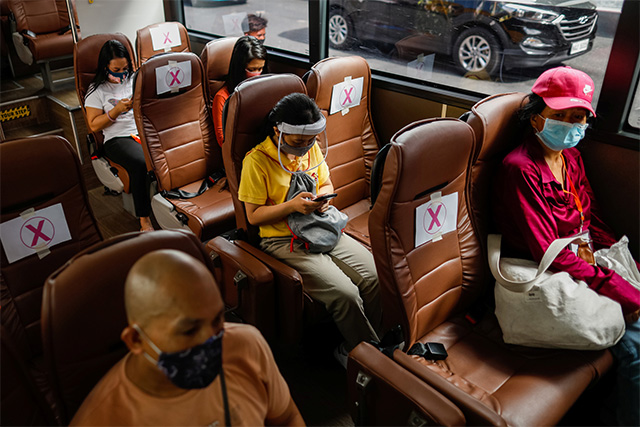Hi there, fellow wanderlust!
As you go traveling from one point to another (especially upon riding public transportations), please do keep in mind that you are protected of your own rights, and as a passenger, you are bound to be shielded away from danger by your common carrier.
A Common carrier, per se is defined by Article 1732 of the Civil Code of the Philippines as "persons, corporations, firms or associations engaged in the business of carrying transporting passengers or goods or both, by land, water or air for compensation, offering their services to the public." Meaning, these are transportation entities compromising of operators, drivers, staff, etc., that offer transit services to the general public, and are hence responsible through the individual's/ the goods' traveling experience in exchange for a fee. Examples of these are: Jeepneys, Tricycles, Public busses and vans, trains, taxis, airplanes, and the like.
Image Source: https://i.pinimg.com/originals/53/94/11/5394111854349cda43ae32b9f1451232.jpg
If you plan to travel locally, or just to basically visit another place here in the Philippines (especially via taking public transpos), expect that you'll encounter some rude and reckless drivers. With a deep sigh, for I am a commuter myself, I have experienced these countless times already, and to think that some of these public utility vehicles treat the road as a 'race track' is undoubtedly a pain in the head. It has already been a common scenario here in our country to where some operators/drivers of these common carriers are stubborn and are not doing their jobs dutifully; overloading of passengers can be seen, over speeding, etc. These reckless acts are actually against the law, for those actions can put the lives of the passengers in danger; it may either lead to injuries on the passengers or worse, it may lead to the death of another. For these to be backed up by data, I'll state the provisions of Article 1733 and 1755 of the Civil Code of the Philippines.
In Article 1733, it was stated that "Common Carriers, from the nature of their business and for reasons of public policy, are bound to observe extraordinary diligence in the vigilance over the goods and for the passengers transported by them"
In Article 1755, "A common carrier is bound to carry the passenger safely as far as human care and foresight can provide, using the utmost diligence of very cautious persons, with regard for all circumstances" was stated.

Notice how "extraordinary" and "utmost" diligence was emphasized? It is because as the operator of the common carrier, they must, and they shall observe extreme care and caution towards providing their service. To which their service pertains to delivering persons or goods from one point to another safely and securely. At all costs, they must know how to be prudent and how to be thoughtful of their actions. Failure to comply to such or the absence of observing "extraordinary diligence" then equates to negligence. (Image Source: https://media.interaksyon.com/wp-content/uploads/2020/06/philippine-bus-social-distancing.jpg)
Just a fun-fact (well, this should be a general knowledge though), As soon as you have stepped your foot on the platform of the PUV you wish to be into - you are already considered as a "passenger" of that vehicle. Therefore, you have already acquired your rights being one, and the obligation of the common carrier to observe extraordinary diligence has also begun. The said obligation then remains until you leave the carrier's premises.
In cases where extraordinary diligence is not met, leading to accidents, injuries, or death of the passengers - the common carriers will immediately be the ones to be held responsible and liable for that matter unless it is proven that they have observed extraordinary diligence in the process. Without such, their liability cannot be avoided and cannot be excluded. The statements mentioned above are actually based on Articles 1756 and 1757 of the Civil Code, and I quote:
Article 1756. "In case of death of or injuries to passengers, common carriers presumed to be at fault or to have acted negligently, unless they prove that observed extraordinary diligence as prescribed on Articles 1733 and 1755."
Article 1757. "The responsibility of a common carrier for the safety of passengers as required in Articles 1733 and 1755 cannot be dispensed with or lessened by stipulation by the posting of notices, by statements on tickets, or otherwise."
To end this, I would just like to say that as a tourist, a commuter, or as a citizen of this country, you must be aware of your rights. Use it to your protection and advantage, but also take note of your responsibilities. The statements stated above are just some to give you a heads-up to what you should be knowing. Please do keep in mind that knowing and exercising your rights significantly benefits you more than you think.
Say safe, and Stay aware, my fellow wanderlust!


Comments
Post a Comment